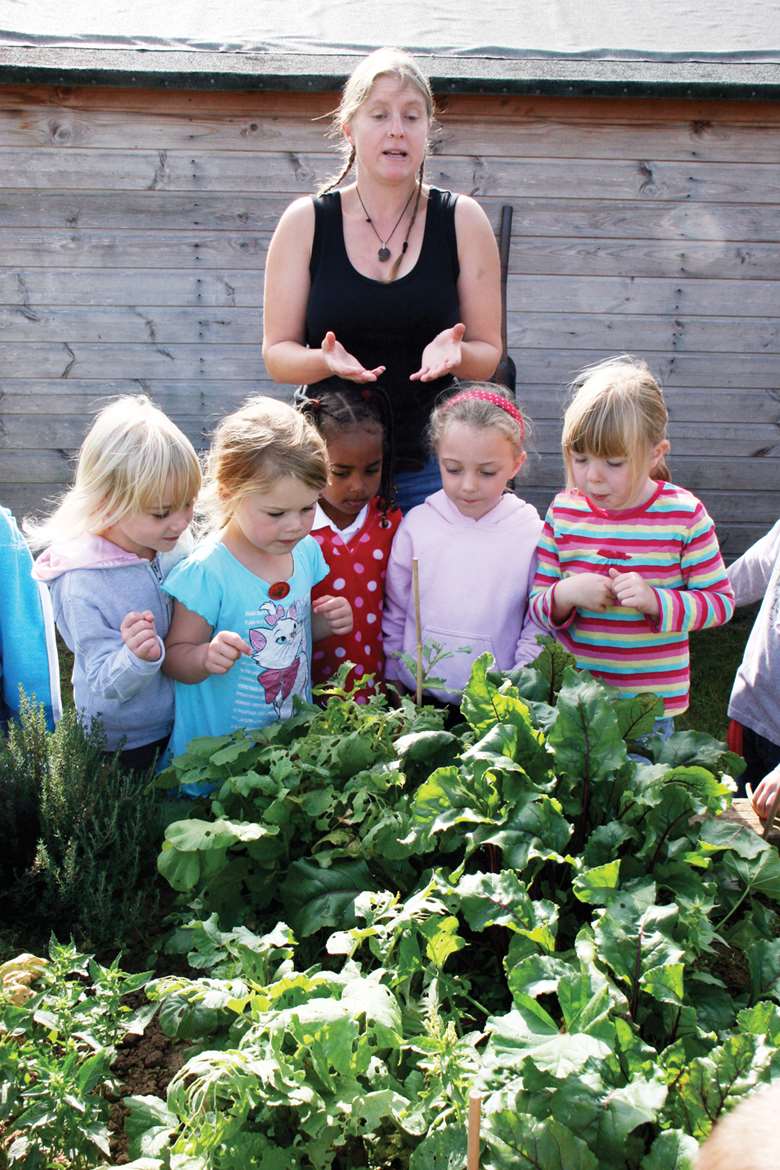Ask the Experts: Growing food, media stories of abuse, learning from mistakes and youth centre help for Eastern European children
Jo Stephenson
Monday, March 30, 2015
Our panel offers advice on growing vegetables, telling stories of abuse, learning from mistakes and help for Eastern European children.

Q: We want to teach the children at our nursery about growing food. Where should we begin?
June O'Sullivan: It is important that we help children find out where food comes from and how it grows.
Not every early years setting has lots of space for growing food but that shouldn't stop you. If you don't have room to create a vegetable plot then grow tomatoes in a sunny spot or herbs in window boxes. Start with growing cress. It's fun and fast so appeals to small children.
Ensure children are engaged in every stage of the process including eating the food they have grown. Enhance their learning by visiting allotments or other places where food is grown. During the summer arrange a trip to a pick-your-own farm for children and parents.
June O'Sullivan is chief executive of the childcare charity and social enterprise, the London Early Years Foundation
Q: We've had a request from local media to interview some young people in our service about their experiences as abuse survivors. I'm not sure this is appropriate but don't want their voices to be silenced. How do I handle this?
Jeanie Lynch: This is a quandary for many services and organisations. While we aim to ensure the voice of the child is at the core of our work, we also have a moral and legal duty of care to ensure young people's safety and wellbeing are not compromised by being identified in the media.
Start by exploring with the young person the implications of being interviewed. Things to consider include their age and whether or not they are still affected by their trauma - if this is the case then I would advise against doing an interview.
If this is a TV interview they could appear in silhouette. Their words could be read by actors or members of staff or you could gain permission to tell their stories via anonymous case studies. There is nothing more powerful than hearing about the experiences of young people in their own words. This way the voice of the young survivor remains loud and clear and their identity protected.
The young person's safety and best interests must be paramount so this not only requires careful discussion with them but their case worker and potentially parents or carers too.
Jeanie Lynch works for Barnardo's and has 25 years' experience of working with vulnerable children and families
Q: How do we promote good practice in children's services to prevent mistakes?
Peter Lewis: There are some obvious sources for benchmarking such as the Ofsted framework and many highlight what good services should be doing. Others include the College of Social Work, Health and Care Professions Council and charities like Action for Children and Barnardo's.
Clearly highlight those good practice benchmarks in your weekly message to staff and ensure they are discussed at every team meeting and within every setting. Services and teams need to set out how they are meeting these standards. If they are not meeting standards then they must show how they will get there.
Break it down into themes such as what makes a good assessment. What are the key points in a good assessment? How are you managing caseloads to comply with deadlines?
Choose themes that make sense for you and your services.
Set up a board with partners to plan, act and deal with any issues before inspectors come calling.
Peter Lewis is a freelance providing interim local authority children's services leadership, and a former DCS in Haringey
Q: A new group of children from Eastern Europe has started attending our youth centre. They speak very little English and our other members have made no effort to get to know them. What should I do?
Tracie Trimmer-Platman: Eastern Europe is a big place and it would be helpful and welcoming to find out exactly where these children hail from.
They are clearly coming to the centre because there is something in it for them and it goes without saying that your job is to get to know them. This is key from a safeguarding perspective. Are they safe and well? Are they housed in suitable accommodation and getting the support they need?
Encourage other members to make friends with the newcomers. Use mobile phone apps and online translation services to break down language barriers. Learning another language can be fun and it's the same with teaching a language. Laughter is a universal language and I am sure there will be lots of laughs if you get this going.
Tracie Trimmer-Platman is senior lecturer in youth and community work at the University of East London
Email questions, marked "Experts", to cypnow@markallengroup.com




